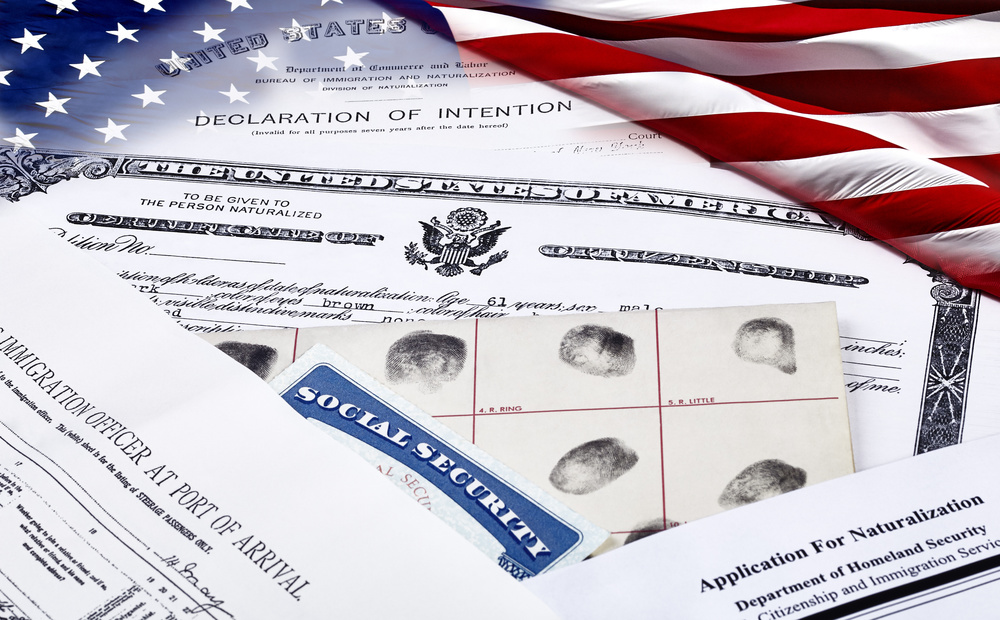Are you a U.S. Citizen or Eligible for Citizenship of Naturalization?

There are a number of ways to qualify for U.S. Citizenship:
- Through an application for Naturalization
- Through Derivative Citizenship
- Through Acquired Citizenship
Each process has its own requirements, briefly described below.
1. Application for Naturalization
Using Form N-400 any person who meets the requirements may pay the fee and apply for naturalization. This process generally involves filling out the form, attending an interview with a USCIS officer, taking the English and civics exams, and finally taking the oath at a separate ceremony. A fee waiver is available on Form I-912 if you cannot pay the filing fee.
The application process is generally straightforward, however, there may be red flags in your case that can cause a denial of your application and, in some cases, cause a lawful permanent resident to be referred to immigration proceedings for removal (deportation). These may include:
- Certain criminal convictions
- Fraud during any part of the immigration process (ie. marriage fraud)
- Failure to be a permanent resident for the specified period of time
- Abandonment of permanent resident status
- Unlawful voting
- Claiming you are a U.S. citizen
While it is generally a good idea to apply for naturalization, there are some cases that must be evaluated before an application is made. If you apply and you are "deportable" then your case will be referred to the Immigration Judge for deportation proceedings.
2. Derivative Citizenship & Acquired Citizenship
These processes are much more complicated than the naturalization process because they depend heavily on dates, ages, marriages, divorces, and legitimization.
Under some circumstances a child may be a U.S. citizen before reaching the age of 18 if his or her parent has already naturalized, while under different circumstances a child born abroad may acquire U.S. citizenship under the law that applied at the time of the child’s birth.
Since these laws have changed over time it is important to understand which law applies to the your case, then analyze it to see if the you qualify, and then file the correct paperwork either with U.S. Citizenship and Immigration Services or the U.S. Department of State.
The following information can help Negrette Law assess your case:
- Date of birth
- Date you became an LPR (if at all)
- Date of birth of U.S. citizen parent
- If you were born in wedlock
- If you were born out of wedlock and which parent holds U.S. citizenship
- If you ever lived in the United States, at what age, and with which parent
- If any grandparent has ever been a United States citizen
If your parents or grandparents were ever citizens it is possible that you are a U.S. citizen and you don’t even know it. If so, it becomes a matter of filing the appropriate paperwork along with supporting documentation.
The information provided in this post is not legal advice for your particular case.
Call Negrette Law, P.C. for a Strategy Session: (619) 356-1448

